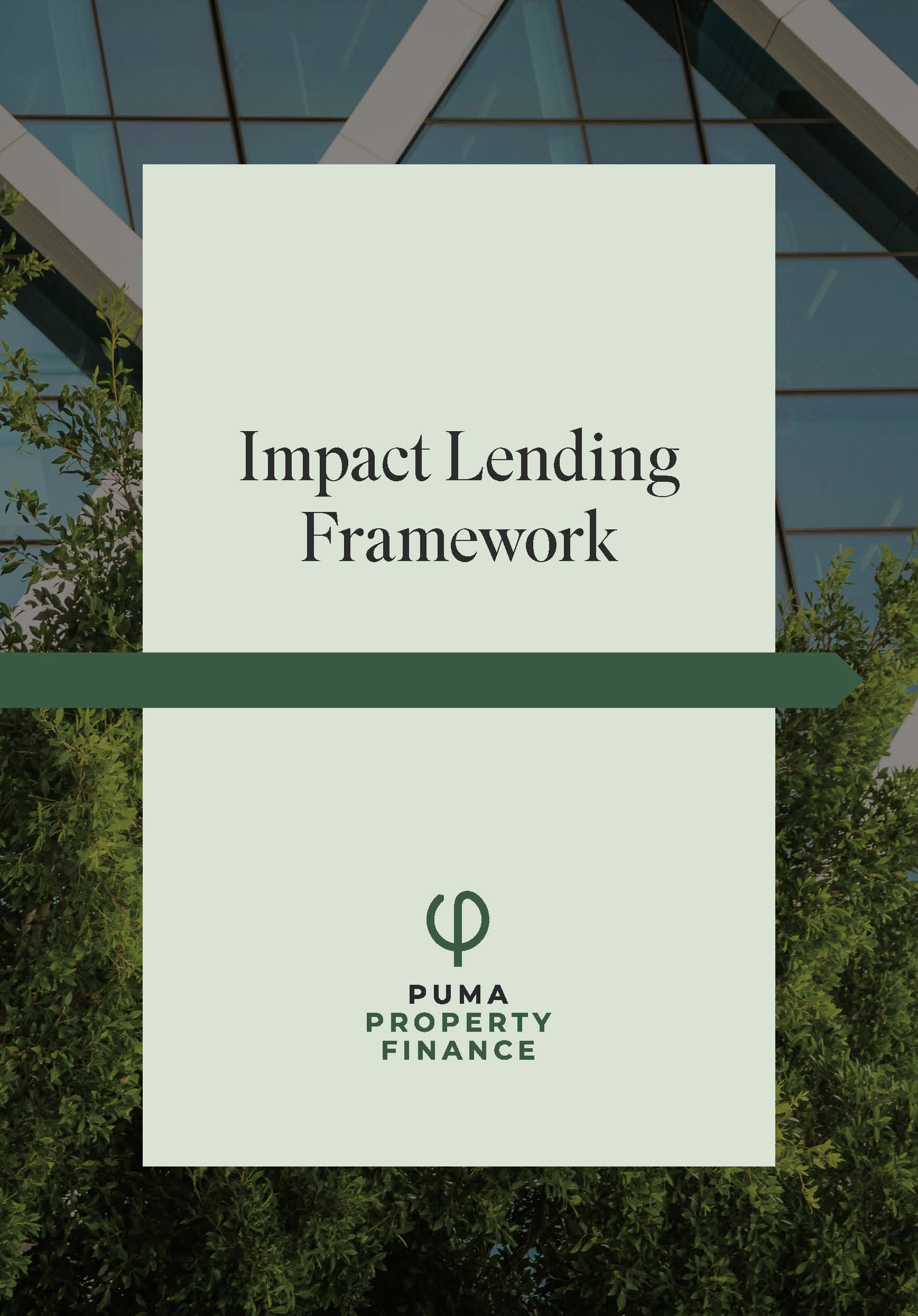
Puma Property Finance launches Impact Lending Framework, providing tangible support to property developers
Puma Property Finance has announced the launch of its Impact Lending Framework (‘the Framework’). The Framework has been established to provide direct financial benefits to property developers across the UK who are implementing measures in their vision and designs that deliver meaningful and impactful change.
The path to net zero remains a huge challenge and with approximately 40% of global carbon emissions coming from the built environment, the property industry has a key role to play in addressing these challenges. In addition, with growing inequality evident in the UK, there is a need to focus on areas that would most benefit from increased investment into social infrastructure, from affordable housing for families to care homes for the elderly.
The Framework sets out criteria under which prospective development projects can qualify as an Impact Loan. The criteria have been designed to make use of independent, industry-accredited measures, which will be subject to external, third-party verification.
Qualification as an Impact Loan will provide direct and tangible financial benefits to borrowers in the form of a fee reduction on final repayment of the loan. Borrowers will receive either 0.5% or 1.0% of the total drawn loan amount as a fee reduction, and loans will qualify under two sets of criteria:
- Sustainability Criteria – these criteria have been designed to encourage the adoption of sustainable methods of construction, and thoughtful design to encourage efficient long-term building usage.
- Social Impact Criteria – these criteria have been designed to encourage investment into areas of higher deprivation or to support the provision of increased affordable housing.
Developments in the build-to-sell, build-to-rent, co-living and retirement living sectors will fall within the scope of the Residential Impact Loan framework. Developments in all other sectors will fall within the Commercial Impact Loan framework.
The Sustainability Criteria have been designed in line with the Loan Market Association Green Loan Principles1, with a distinction applied between Residential Loans and Commercial Loans to reflect the different assessment schemes applying in these sectors.
- Residential Loans – must meet BOTH of the following criteria:
- Minimum EPC B for all units
- Minimum Silver rating under NextGeneration Project criteria (additional benefit for achieving Gold rating)
- Commercial Loans – must attain EDGE Certificate level (additional benefit for achieving EDGE Advanced level)
Loans achieving the minimum criteria above will qualify for a fee reduction equal to 0.5% of the total drawn loan, payable following the full repayment of the loan. For loans meeting the higher level of assessment under NextGeneration Project or EDGE, the fee reduction will increase to 1.0% of the total drawn loan.
The Social Impact Criteria have been designed to align with the Loan Market Association Social Loan Principles2. Criteria are based on the locality of the proposed development, with projects qualifying if – at the time of loan approval – they are located within local authority wards in the top three deciles of deprivation, according to independent government statistics. For Residential Loans, an alternative means of qualification applies where a minimum of 50% of units will be classified as affordable housing. Loans achieving the minimum criteria above will qualify for a fee reduction equal to 0.5% of the total drawn loan.
In order to ensure objective application of the Framework, Puma has partnered with independent third parties JLL and Sintali. JLL currently undertake this in their role as Secretariat of NextGeneration3, an initiative between Homes England, the UK Green Buildings Council, Lloyds Bank and JLL focused on UK housebuilders. Sintali is a specialist in EDGE certification4; EDGE is a green building certification system focused on making buildings more resource efficient with operations globally. Sintali is one of the EDGE global certification providers on behalf of the International Finance Corporation, a member of the World Bank, and works with leading EDGE Auditing firms such as SGS to deliver a streamlined certification experience for clients.
Our view
“We are immensely proud to be launching our Impact Lending Framework, which is the culmination of many months of thought and consultation and follows our University College London partnership that we announced last year. “We take both our environmental and social responsibilities seriously at Puma and believe property lenders are uniquely placed to incentivise the adoption of more sustainable and impactful practices within the built environment. The new Framework has been carefully designed to reward developers who actually deliver, not just aspire to deliver, impactful projects. It utilises independent, industry-accredited criteria with external, third-party verification from global leaders in their field. “This Framework is our next step towards moving the dial and we sincerely hope it will be the encouragement developers and other lenders need to take that next step too.”
Eleni Polychroniadou comments:
““EDGE was designed by IFC to transform the global real estate market and make green buildings available to everyone. It is encouraging to see lenders such as Puma Property Finance embracing this mission and supporting the UK market in accelerating the decarbonisation of the built environment. With a focus on quantitative results and a reduction in greenhouse gas emissions, EDGE brings value to businesses and to the environment, and paired with the financial incentive from the Impact Framework, creates a win-win opportunity for all.”
Claire Racine comments:
“Puma’s Impact Lending Framework is a welcome means for encouraging UK developers to deliver projects that are good for people and the planet. Based on over 20 years of experience benchmarking sustainability best practice in homebuilding through the NextGeneration Initiative, NextGeneration Project provides a succinct, holistic set of criteria for demonstrating sustainability performance. We very much look forward to working closely with Puma Property Finance and their clients.”
